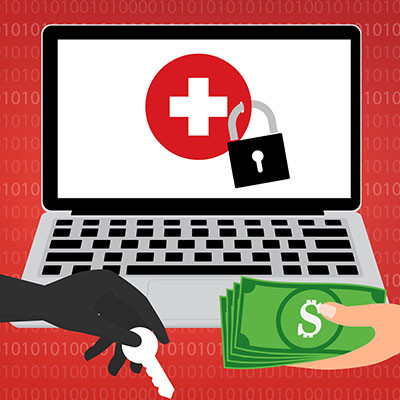Datalyst Blog
Poor Cybersecurity Can Put Human Lives at Risk
Ransomware and healthcare don’t mix, and cybercriminals are taking advantage of this fact to an alarming degree. Let’s consider the dangers associated with the presence of ransomware in the healthcare space.
Spoiler alert: they’re really bad.
Ransomware Used Against Healthcare Has Exploded in the Last Year
Between 2021 and 2022, ransomware attacks against healthcare providers exploded in number, increasing by 94% in that span of time alone. They nearly doubled. That’s not good.
You also need to consider that the healthcare industry is particularly susceptible to ransomware, considering how reliant medical professionals are on IT nowadays. Not only do their systems contain all of the crucial data they need to operate and care for their patients, many of their patients are also attached to life-saving medical devices that could easily be influenced by ransomware and other such threats.
Imagine; a patient comes into your medical facility for a desperately-needed treatment, or is staying there as part of their long-term care, and you suddenly can’t give them their critically important medicine because you can’t access their medical records. Or perhaps the ransomware attack locked you out of your infrastructure itself, and now you can’t monitor their condition as a result.
Again, not good.
This makes it critical that you approach your healthcare facility’s IT with security first in mind… as well as second, fifth, ninth, you get the picture. Naturally, this will involve equipping your facility with all the requisite cybersecurity protections and ensuring that they are properly maintained. However, your team’s awareness of these protections and their preparedness to incorporate them into their workflows is equally critical.
What Security Issues and Threats Do Healthcare Organizations Deal With?
There are assorted threats that modern businesses need to deal with that are particularly utilized against healthcare systems, along with the associated cybersecurity challenges that come with them.
For instance, cybersecurity threats generally come with the risk of general downtime (interfering with the successful execution of your business processes) and data breaches (where your business’ data is accessed without authorization), and there are plenty of threats that a cybercriminal has to choose from. The big ones lately have largely utilized ransomware—where a cybercriminal locks down your systems and demands payment in exchange for their return—that has been distributed through phishing attacks. Phishing attacks are a form of social engineering, where your employees will be targeted under false pretenses—either an offer or a threat—in an attempt to coerce them to share data.
Another common method modern criminals use is something called a DDoS attack (short for Distributed Denial of Service) where a horde of devices that have been infected are all instructed to ping a network, ultimately overwhelming it under the onslaught of traffic.
None of these are good, which makes it important that today’s healthcare providers have the means to avoid these attacks.
We Can Help Prepare Today’s Medical Professional for Modern Cyberthreats
Find out more about what we have to offer by giving us a call at (774) 213-9701 today.
Comments

